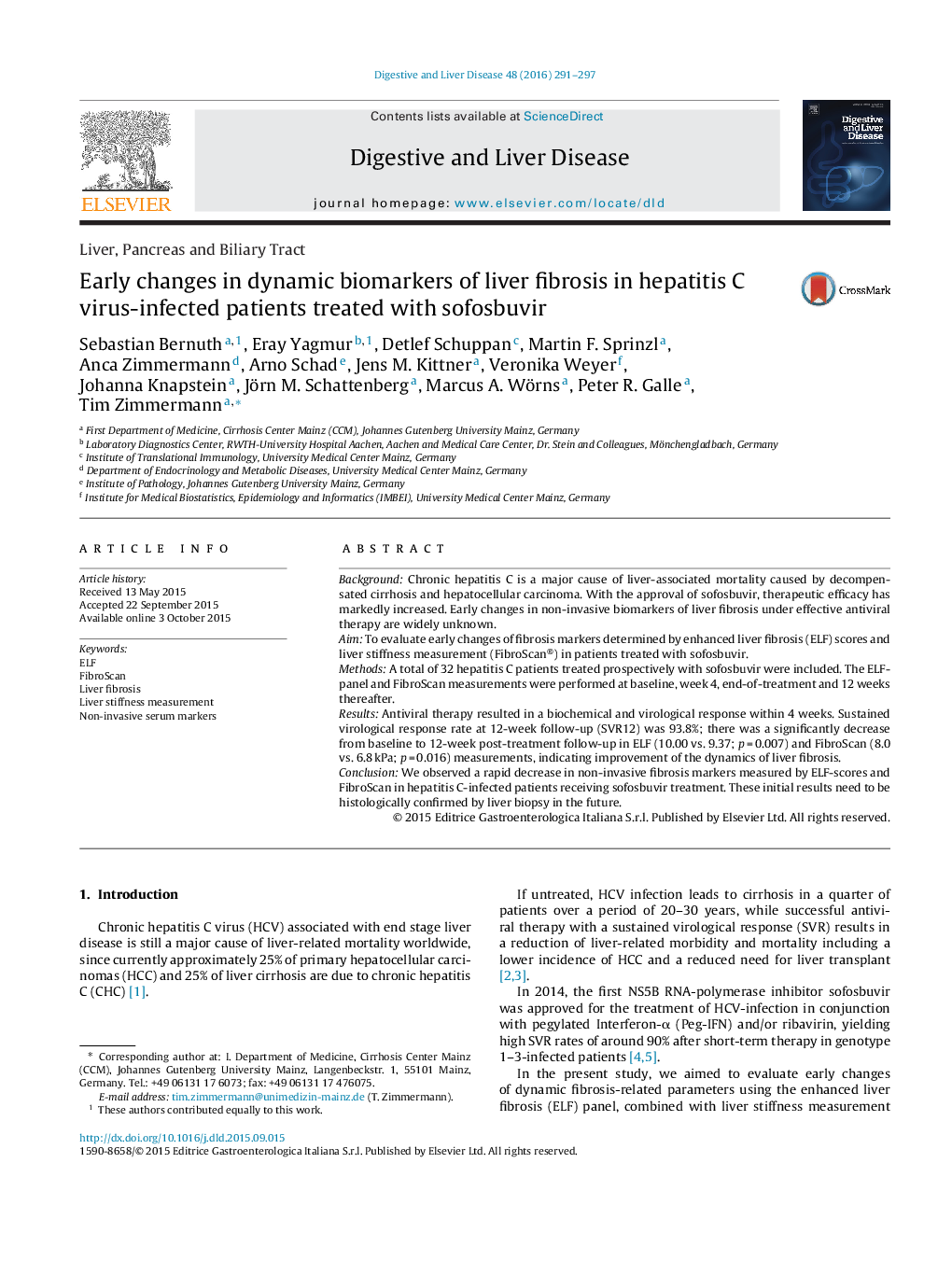| Article ID | Journal | Published Year | Pages | File Type |
|---|---|---|---|---|
| 6087992 | Digestive and Liver Disease | 2016 | 7 Pages |
BackgroundChronic hepatitis C is a major cause of liver-associated mortality caused by decompensated cirrhosis and hepatocellular carcinoma. With the approval of sofosbuvir, therapeutic efficacy has markedly increased. Early changes in non-invasive biomarkers of liver fibrosis under effective antiviral therapy are widely unknown.AimTo evaluate early changes of fibrosis markers determined by enhanced liver fibrosis (ELF) scores and liver stiffness measurement (FibroScan®) in patients treated with sofosbuvir.MethodsA total of 32 hepatitis C patients treated prospectively with sofosbuvir were included. The ELF-panel and FibroScan measurements were performed at baseline, week 4, end-of-treatment and 12 weeks thereafter.ResultsAntiviral therapy resulted in a biochemical and virological response within 4 weeks. Sustained virological response rate at 12-week follow-up (SVR12) was 93.8%; there was a significantly decrease from baseline to 12-week post-treatment follow-up in ELF (10.00 vs. 9.37; p = 0.007) and FibroScan (8.0 vs. 6.8 kPa; p = 0.016) measurements, indicating improvement of the dynamics of liver fibrosis.ConclusionWe observed a rapid decrease in non-invasive fibrosis markers measured by ELF-scores and FibroScan in hepatitis C-infected patients receiving sofosbuvir treatment. These initial results need to be histologically confirmed by liver biopsy in the future.
